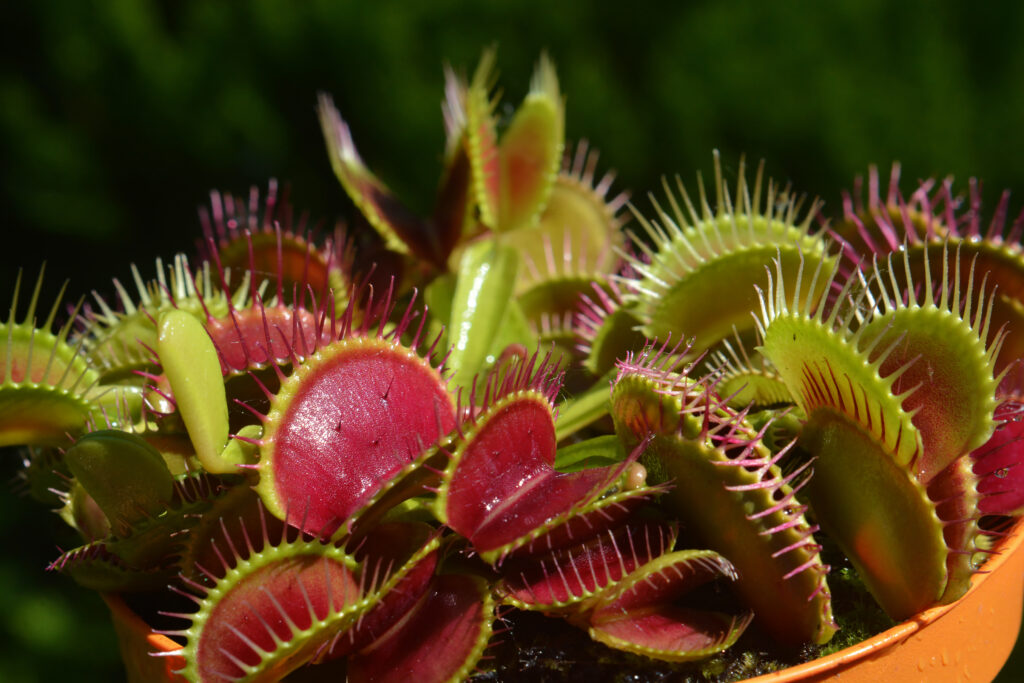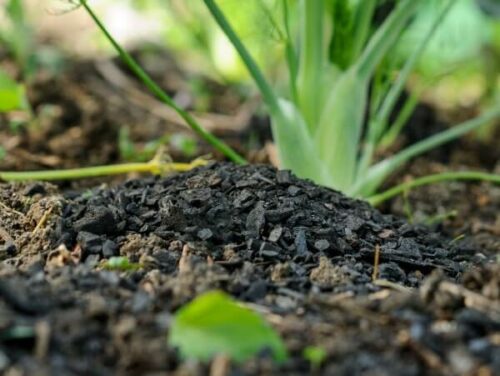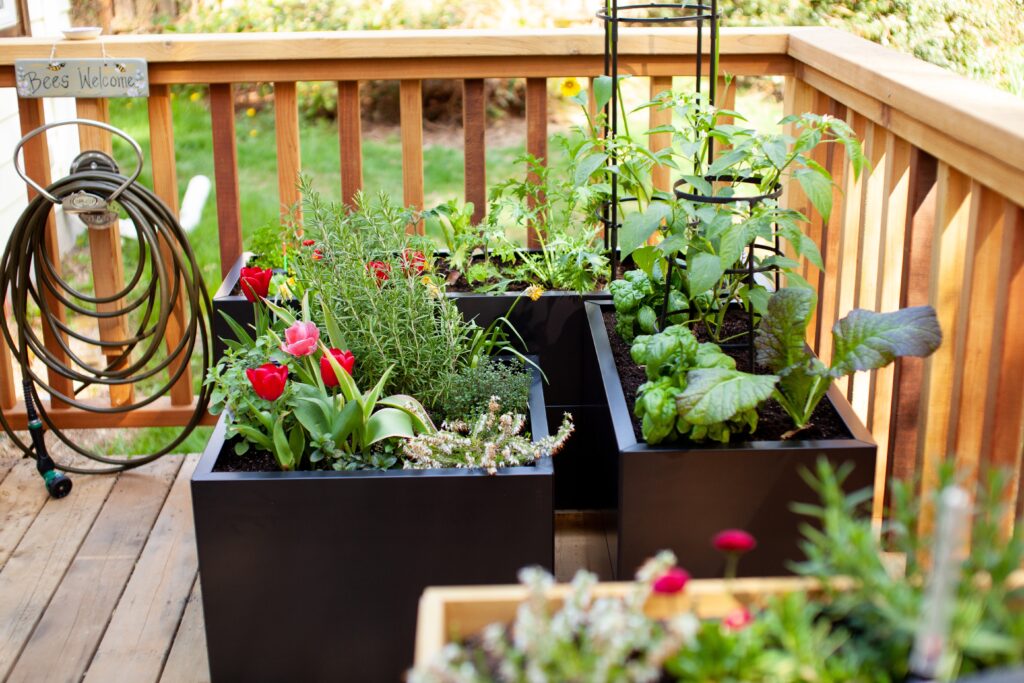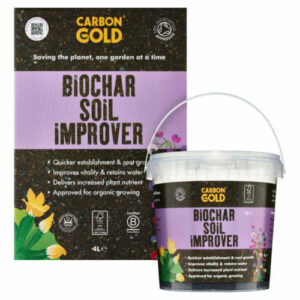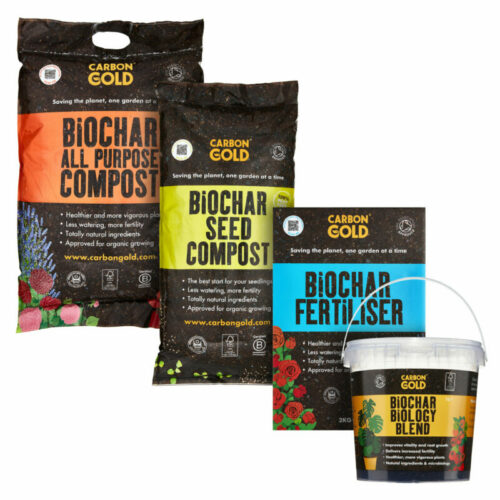Many species of carnivorous plants, such as Venus flytraps, pitcher plants, the cobra lily, corkscrew plant and sundews, are not your ordinary garden plants. These unique and fascinating creatures have adapted to growing in nutrient-poor environments by developing the ability to capture and digest insects and other small animals. However, as with any living thing, they require specific conditions to thrive. One secret weapon that can give your carnivorous plants the boost they need is Carbon Gold biochar.
Unleashing the Secrets of Carnivorous Plants
Carnivorous or insectivorous plants are native to boggy, acidic environments such as wetlands, bogs and waterlogged soils such as fens where the soil is low in nutrients. To survive in such hostile conditions, these plants have evolved to capture and digest insects and other small animals to obtain the nutrients they need. Different types of carnivorous plants species have different ways to capture prey. Venus flytrap has modified leaves that close around insects, the Pitcher plant has a deep cavity filled with a sticky mucilage or digestive enzymes which breakdown the animal protein and sundews have sticky tentacles which work as adhesive traps. Imagine a world where plants can eat animals, it’s like a scene out of a science fiction movie, but it’s happening right in your garden.
The Magic of Biochar
Biochar production is heating organic matter, such as wood or agricultural waste, in the absence of oxygen. This process, known as pyrolysis, creates a highly porous and stable material that can be used to improve soil quality. Biochar has a high surface area-to-volume ratio, which makes it an excellent substrate for beneficial microorganisms. Additionally, it can help to increase water retention and improve soil structure, making it an ideal amendment for carnivorous plant care. Think of biochar as a superfood for your carnivorous plants, giving them the nutrients they need to grow strong and healthy. As a soil improver, Carbon Gold Biochar not only improves terra preta soils but also reduces greenhouse gasses, and aids climate change and becomes a carbon sink. It is made from woody materials, which means as well as sequestering carbon the biochar produced also enables beneficial organisms to naturally replicate in the substrate or soil, but also naturally reduces the pathogens in the soil.
Why Biochar is a Game Changer for Carnivorous Plants
Carnivorous plants require soil with low nutrient levels and acidic soil. Biochar can help to create these conditions by providing a well-draining soil that is rich in organic matter. Additionally, biochar is alkaline by nature, which can help to balance out the acidity of the soil and improve plant growth. The pH of the substrate is important for carnivorous plant health, as they require a specific pH range in order to thrive. For example, Venus flytraps prefer a pH between 4.0 and 5.0, while pitcher plants prefer a pH between 4.5 and 5.5.
Biochar can also help to improve water retention, which is essential for carnivorous plants. These plants are adapted to growing in boggy environments and require consistently moist soil in order to survive. Biochar can help to retain water in the soil, which can be especially beneficial during periods of drought. Think of biochar as a water bottle for your plants, keeping them hydrated and happy.
Another benefit of using biochar is that it can help to suppress pathogens and pests. Biochar has been found to have antimicrobial properties, which can help to prevent the growth of harmful bacteria and fungi. Additionally, it can help to deter pests, such as nematodes and root-knot worms, which can be harmful to carnivorous plants. With biochar, your carnivorous plants will be protected from the dangers of pathogens and pests naturally while also being able to store carbon under the soil surface, whether sandy soils, waterlogged soils or even just degraded soils.
How to Unleash the Power of Biochar for Your Carnivorous Plants
When using biochar for carnivorous plants, it is important to use a high-quality product that is specifically designed for horticultural use. Not all biochars are created equal, and some may contain impurities that could harm the plants. One such brand is Carbon Gold biochar, whos production process allows the biochar to be specially formulated for horticultural use, and is free from impurities.
To use biochar for carnivorous plants, mix it with a peat-free compost made from organic material, such as coir or leaf mold, in a ratio of 1:4 (1 part biochar to 4 parts compost). This will help to create a well-draining soil that is rich in organic matter. Mix the biochar and compost together and use it to amend the soil around the carnivorous plants.
It is important to keep in mind that carnivorous plants prefer acidic soils with low nutrient levels, so apply biochar in a small amount and monitor the pH level of the soil. A pH level between 4.5 and 5.5 is best for most carnivorous plants. To ensure that you have the perfect balance, you can use a pH meter or pH test kit to measure the acidity of the soil.
With the right application techniques, and monitoring the pH level, you can give your carnivorous plants the best chance to thrive. By adding a small amount of Biochar Biology Blend to your carnivorous plant care routine, you can expect to see healthier, happier plants that are better equipped to handle the challenges of their unique environments.
In conclusion, carnivorous plants are a unique and fascinating addition to any garden. By incorporating biochar into your plant care routine, you can give your carnivorous plants the boost they need to thrive in their nutrient-poor environments. With the help of biochar, you can unlock the full potential of your carnivorous plants and create a truly mesmerizing garden.
